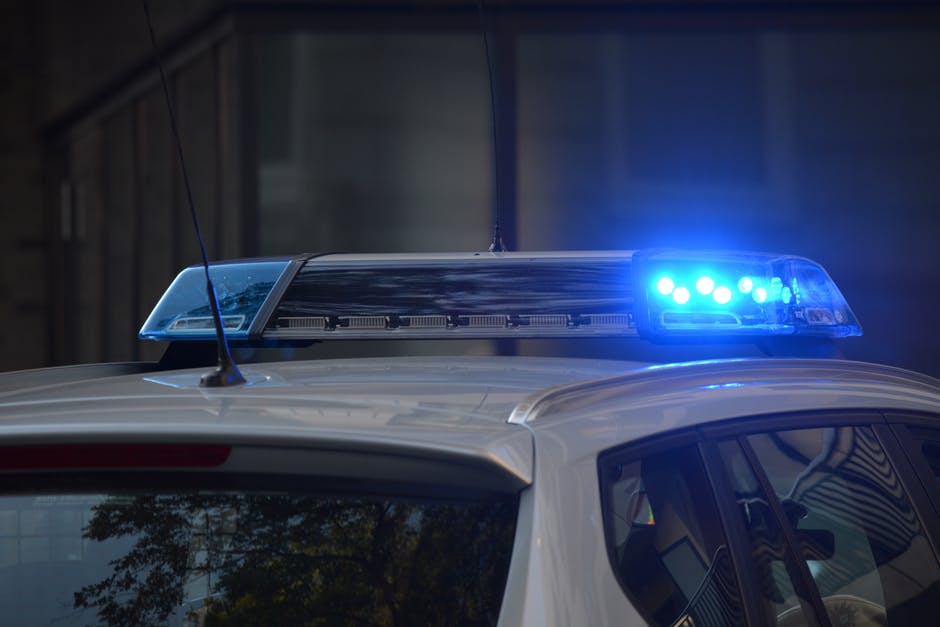RICHMOND, Va. (CN) — Attorneys sparred before a Fourth Circuit panel Tuesday over whether Virginia sheriff's deputies illegally arrested a Black motorist for refusing to give his name after he pulled over to check on engine problems.
George Wingate was traveling down a highway in Stafford County to visit his girlfriend in 2017 when his new car’s check-engine light came on around 2 a.m.
Wingate depended on the vehicle as a driver for ride-sharing company Uber, so the former car mechanic immediately pulled off to the side of the road near a car dealership and left his headlights and taillights on while he checked out the problem.
“He looked under the hood of his car with a flashlight to see if anything was wrong. Finding nothing evidently amiss, he left the car hood up and engine running and reentered his car to try to diagnose the problem using the Auto Doctor application on his smartphone,” according to Wingate’s brief filed with the Fourth Circuit.
That’s when Stafford County Sheriff’s Deputy Scott Fulford, who is white, approached the scene.
“It was converted into almost an ego battle between the officer and the plaintiff, that's what it looks like,” U.S. Circuit Judge Paul Niemeyer said during Tuesday’s hearing.
According to Wingate’s 2018 lawsuit against Fulford, the deputy did not suspect the driver of any wrongdoing but demanded he identity himself anyway, which Wingate refused to do.
“Mr. Wingate was aware of his rights,” the complaint states. “He was also aware that he was an American-American man being wrongfully required to identify himself to a white deputy who had confirmed to him that he had done nothing wrong and was not suspected of having done anything wrong.”
Fulford then arrested Wingate and falsely claimed that not identifying himself was a crime, according to the complaint. The charge was later dismissed.
“It was at the point that he refused to give his name that Officer Fulford turned on his mic and requested backup,” Wingate’s attorney Victor Glasberg told the Fourth Circuit panel on Tuesday.
“Police officers are in the habit of being obeyed,” Glasberg added, “and sometimes they don't take it very well when they’re not. That’s what got him riled up.”
Wingate sued Fulford in Alexandra, Virginia, federal court, later adding Lieutenant Dimas Pinzon as a defendant for helping Fulford conduct the arrest. He alleged false arrest and malicious prosecution.
Siding with the deputies in May 2019, U.S. District Judge Anthony J. Trenga tossed out the case. The George W. Bush appointee dismissed all of Wingate’s claims on the grounds that Fulford had reasonable suspicion to make an investigatory stop, and that he and Pinzon had probable cause for arresting the driver because he refused to identify himself. Trenga also ruled the officers were entitled to qualified immunity.
Wingate’s attorney urged the Fourth Circuit judges to reverse that decision Tuesday, arguing the lower court was wrong to find Fulford had reasonable suspicion of criminal activity.
“This is, as we say, a free country and the police officer simply doesn’t have the right to come up to somebody for whatever reason and say, ‘I’d like your name,’” Glasberg told the three-judge panel.
Fulford testified in a deposition that he asked for Wingate’s identification because he perceived “red flags,” which included the driver having walked over to greet him when he exited his patrol car and the darkness of Wingate’s clothing.
Alex Francuzenko, who represented Fulford and Pinzon during Tuesday's hearing, told the panel that the deputy was suspicious due to these factors and because Wingate had stopped in a particular area where vehicle theft was on the rise.
“It was his perception that when he was dressed in all black clothing, that was a little odd at 2 o’clock in the morning,” Francuzenko said.
But Niemeyer countered that “it’s pretty chic to wear black on black.”
Showing little patience for Francuzenko’s arguments, the Ronald Reagan-appointed judge pushed back on the attorney’s assertion that Wingate’s location near a car lot could spark suspicion of attempted theft.
“Every human being going through that location could theoretically be stopped on that basis,” Niemeyer said.
But Francuzenko retorted, “Catalytic converter parts were being stolen, so when you have a vehicle that’s within a couple of feet of these parked used cars, he could have chosen a different location, but he was right next to these cars.”
Glasberg argued these circumstances alone are not enough to warrant his client’s arrest. Wingate’s attorney also said any claim that Fulford may have been concerned for his safety is “after-the-fact rationalization to justify the stop, which was for an innocuous piece of work.”
Niemeyer also noted a logistical problem with the officer’s argument involving theft.
“He does not have an accomplice so he's going to be driving two cars, right? The one he’s stealing and his own?” the judge asked in reference Wingate and the officer’s suspicion of him. “Or is he going to leave his own behind and steal another one?”
Niemeyer was joined on the panel by U.S. Circuit Judges Julius Richardson, a Donald Trump appointee, and Roger Gregory, who was appointed by George W. Bush. The judges did not say when they would issue a ruling.
Subscribe to Closing Arguments
Sign up for new weekly newsletter Closing Arguments to get the latest about ongoing trials, major litigation and hot cases and rulings in courthouses around the U.S. and the world.








